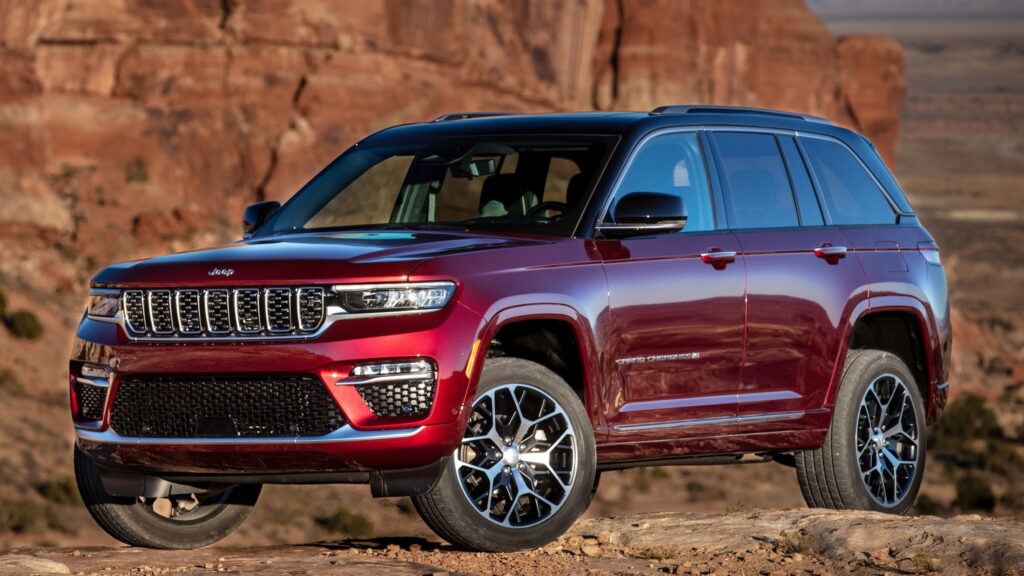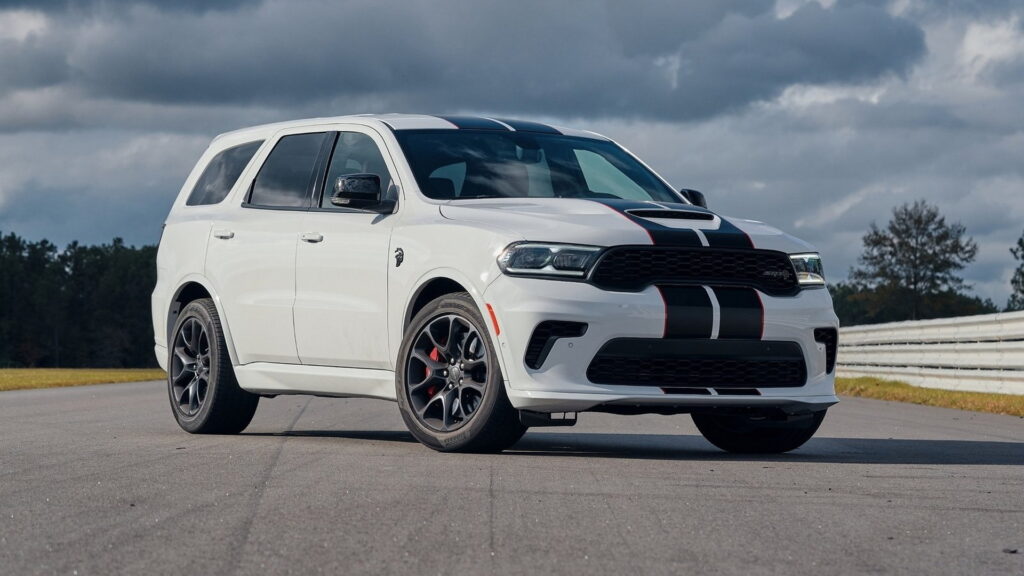- Employees at the site will be canvassed for work and notified by management.
- Stellantis says production has been halted to better align it with current sales.
- Last month, the carmaker fired over 200 workers at Detroit Assembly Complex Jefferson.
The Stellantis factory in Detroit responsible for churning out Jeep Grand Cherokees and Dodge Durangos will sit idle this week, as the automaker grapples (among other things) with tepid sales and bloated inventories that refuse to budge.
Employees at the Detroit Assembly Complex’s Jefferson site received notice last Friday that production would grind to a halt from October 28 through November 1. Management will assess worker availability for the week, but that “canvassing” essentially means shifts will be sparse and unpredictable.
Read: Stellantis Pauses Jeep Wrangler And Grand Cherokee Production As Inventories Swell
In a carefully worded statement to Carscoops, Stellantis spokesperson Ann Marie Fortunate confirmed the production halt, presenting it as a strategic move to match production with sales.
“Stellantis continues to take the necessary actions to align production with sales,” she said. “This includes making production adjustments at the Detroit Assembly Complex – Jefferson. The Company will continue to monitor the situation to assess whether further action is required.”
Mopar Insiders notes this isn’t the only blow dealt to workers at the Detroit site in recent weeks. In late September, Stellantis terminated the contracts of 142 supplemental workers at the facility. It also laid off 69 full-time employees at the plant. Additional supplemental workers and full-time employees were sacked at the Detroit Assembly Complex – Mack site, which also produces the Jeep Grand Cherokee alongside the Grand Cherokee 4xe and Grand Cherokee L.

At the time, Fortunate said these layoffs were part of broader efforts to improve efficiency across the carmaker’s US operations.
This isn’t the first time that Stellantis has halted production of two of its most important models in the US in recent months. In early September, Jeep quietly halted production of the Wrangler and Grand Cherokee for several days. It described the pause as simply “production adjustments,” and the move was thought to be related to swelling inventory levels for the brand across the US. At one stage, the Jeep and Ram brands had at least twice the industry average of supplies. Inventories at Alfa Romeo, Chrysler and Dodge were also well above the industry average.




